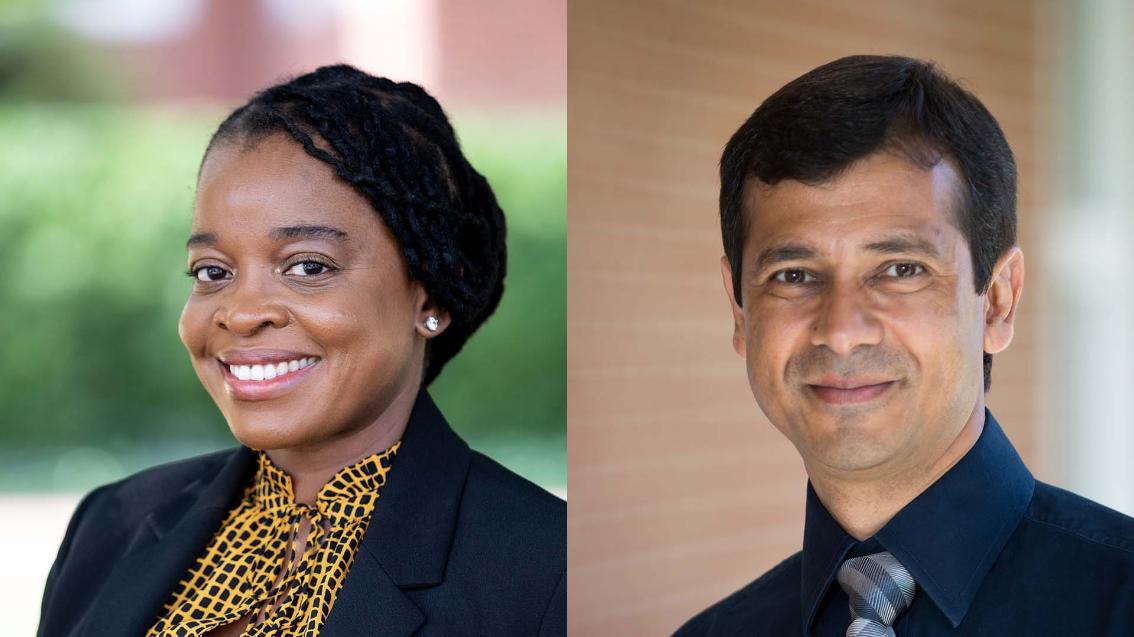

This fall two Longwood University faculty members extended the reach of their scholarly work to Africa and Asia, connecting with colleagues many thousands of miles away to share their knowledge of autism spectrum disorder and the role of artificial intelligence in education.
And their students in Virginia are benefiting from these international connections as well.
At the invitation of the University of Venda and the University of Pretoria in South Africa, Dr. Alecia Blackwood, assistant professor of education, gave the opening keynote address at the Conference on Ethical Artificial Intelligence (AI) in September.
Dr. Aftab Khan, associate professor of special education, gave a keynote address at the inaugural ceremony of the International Conference on Research in Special Education held at the University of the Punjab in Pakistan in December. He also led a workshop, Screening and Diagnosis of Autism, during the conference.
Both Khan and Blackwood are faculty members in Longwood’s College of Education, Health, and Human Services.
I firmly believe that excellence is a shared responsibility, and I am committed to inspiring my students to embrace this philosophy of excellence in all they pursue.
Dr. Alecia Blackwood Tweet This
Blackwood, a 2024 Research Fellow of the International Society for Technology in Education, said she was invited to speak at the conference because its theme—AI for the People: An Ubuntu Approach to Transforming Health, Education and Economic Landscapes— closely aligns with her current research on the role of artificial intelligence in education as well as the themes in her book, Ubuntu Pedagogy, which emphasizes a humanistic approach to teaching and learning. (Ubuntu, a term derived from a Zulu phrase, has its roots in humanist African philosophy based on the idea of community as one of the building blocks of society.)
“These experiences enable me to guide students in developing their knowledge as digital citizen leaders and how to use AI systems ethically and responsibly,” said Blackwood. “I firmly believe that excellence is a shared responsibility, and I am committed to inspiring my students to embrace this philosophy of excellence in all they pursue.”
Khan’s address focused on the benefits of artificial intelligence in the field of special education, which, he said, has always been ahead of the curve in embracing technology that would address and accommodate the ways students with exceptionalities learn.
Educators are continuously adapting teaching methodology to align with situations and students’ levels of understanding. Students with exceptionalities, especially those diagnosed with autism spectrum disorder, have benefited from AI-based programs.
Dr. Aftab Khan Tweet This
“Teaching these students is a challenging task given their learning abilities,” said Khan, whose scholarship focuses on special education. “Educators are continuously adapting teaching methodology to align with situations and students’ levels of understanding. Students with exceptionalities, especially those diagnosed with autism spectrum disorder, have benefited from AI-based programs.”
For example, he said he has observed schools in Virginia that are using Lexia, an interactive and adaptive literacy program with embedded AI components to generate lessons and monitor students’ progress.
Like Blackwood, Khan brings what he learns from his international experiences back to his students at Longwood.
“AI is an emerging field in all disciplines, and I want to make sure my students are aware of and understand the innovations that are happening with this technology so they can apply this knowledge with their own students,” he said.
